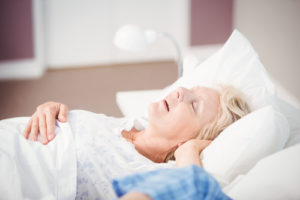
Types Of Sleeping Disorders
Circadian rhythm cycle is actually the biological clock in one’s body that controls the sleep and wakefulness period of a person. Any disruption to the circadian rhythm can result in various sleeping disorders that may ultimately result in snoring and sleep apnea or other serious health issues. In some cases, it can happen the other way round as well. That is, snoring can lead to circadian rhythm sleep disorders and other health problems. In such cases, you can use any of the snoring devices recommended by a physician to alleviate it.
Categories of Circadian Rhythm Sleep Disorders
Intrinsic and extrinsic disorders are two types of circadian rhythm sleep disorders. The former one is actually an internal health condition, in which the biological clock of a person is different from that of others. In this case, the person may either go to sleep way too early or late when compared to others. This will get worse every other day.
In case of the latter, it is circumstantial. That is, external factors like darkness, light, stress related to family, job, work, etc. Similarly, uncommon working schedules or snoring issues can also contribute to this. Below are some of the common intrinsic circadian rhythm sleep disorders.
Delayed Sleep Phase Syndrome (DSPS)
In this disorder, the affected person feels exhausted at later hours when compared to others, which makes him/her stay awake throughout the night. As a result, the person will wake up late in the morning. In such patients, the melatonin production will occur at least two or more hours later, which keeps them awake at night. Furthermore, along with a delayed production, the melatonin hardly lasts the same amount of time as in normal people, making it hard for the affected persons to wake up early.
Note that teenagers and young adults are mainly prone to DSPS and this may reflect in their academic performance as well. People suffering from DSPS often encounter other disorders such as depression, excessive daytime sleepiness, late night insomnia, regular snoring, etc.
Advanced Sleep Phase Syndrome (ASPS)
In this case, the affected person will start feeling sleepy earlier in the evening making him/her sleep earlier than others, which is just the opposite of DSPS. However, the melatonin production is same as that of DSPS patients. Still, the sufferers tend to wake up two hours earlier in this case.
In some cases of ASPS, the patients will wake up two hours late. Here, the side effects include early morning insomnia, depression, insufficient sleep, excessive daytime sleepiness, etc. It is noted that ASPS is commonly seen in elderly people, where as only 1% of young adults are diagnosed with the sleep disorder.
Be the first to comment on "Common Types of Intrinsic Circadian Rhythm Sleep Disorders"